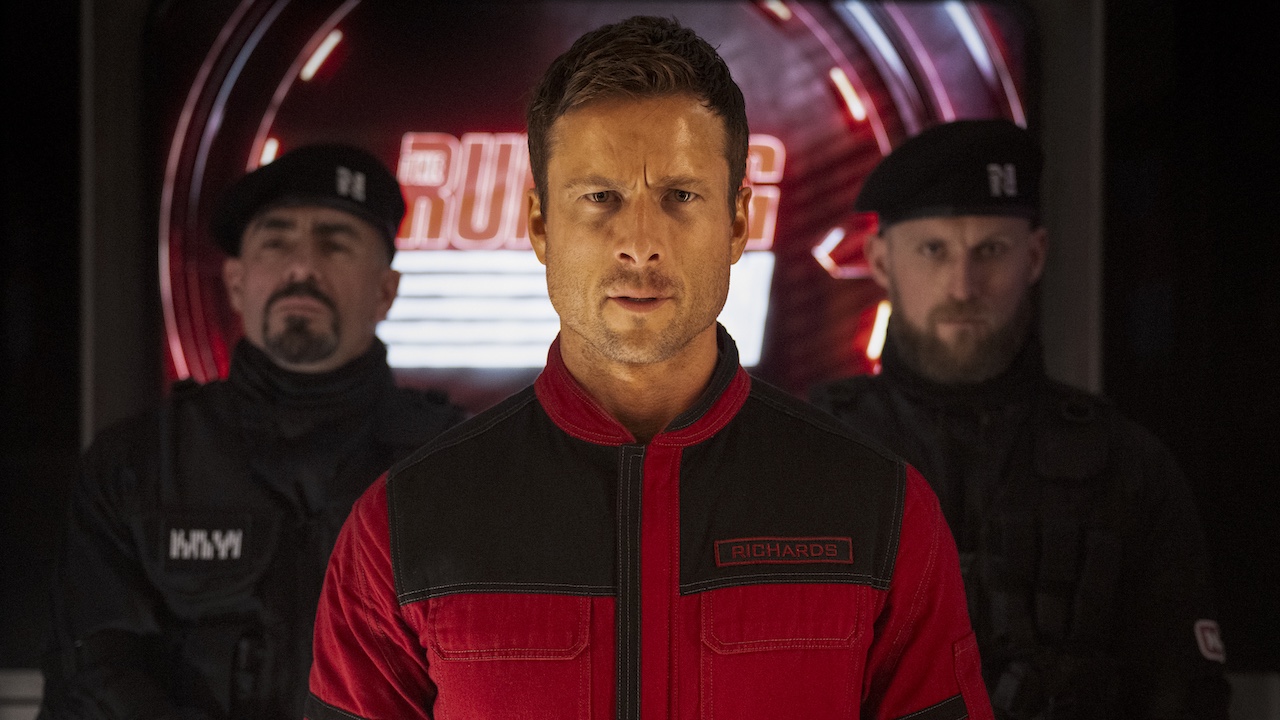Director David Cronenberg seems to have a sore spot when it comes to the grind of Hollywood life. But that strain is more personal for screenwriter Bruce Wagner. He worked a variety of jobs, including as a chauffeur for celebrities, after dropping out of Beverly Hills High. As such, he was exposed to the dark side of the industry: rude agents, insane B-list stars, and the ridiculous lifestyles they lead.
Wagner’s Maps to the Stars, a film long in the making, has all of this. It’s just a shame that (a) there’s nothing we haven’t seen before; and (b) the ultimate goal of the film is unclear, especially if you’re familiar with Wagner’s life and his own take on the story.
There’s a lot going on in Maps to the Stars, which is why the message is a bit muddled. Most of the drama stems from the Weiss family. The head of the household, Stafford (John Cusack), is a successful TV psychologist who is planning a press tour for his latest book. He also offers personalized massages and physical consultations to a celebrity clientele, including Havana Segrand (Julianne Moore). Though, we’ll get to her in a second. There’s also Mrs. Weiss (Olivia Williams), who tries to mask her emotional sorrows with chain smoking and watching over her celebrity son, Benjie. It’s not for the benefit of his, though, as we first meet him as a Justin Bieber-sized douchebag who chugs energy drinks because he’s a recovering druggie and alchie.
As if their lives weren’t darkly warped enough, it’s flipped on its head when a mysterious woman (Mia Wasikowska), who’s more than what she seems to be, waltzes into town sporting burn marks on her arms. She gets a job as Havana’s assistant, but she’s soon revealed to play a role in every character’s story.
I wish I hadn’t read Wagner’s disclaimer of sorts in The Guardian, even after seeing the film. He clearly has a different take than most critics on what this film is, which makes it even more painfully obvious that the techniques he pulled in Maps to the Stars did not clearly come across. For one, he sees the film as being about Havana, which is interesting since she’s written as a supporting character.
No surprise here: Moore is incredible in this role. Though her character is mainly concerned with the problems that come with being an aging star, the twist here is that she’s haunted by the ghost of her mother, a legendary actress. Havana is trying to land the leading role in a new movie that would see her playing her own mother. As such, Havana sees her mother’s teenage self as a phantom that mocks and taunts her, even as she’s having a sloppy three-way. That’s why she needs an assistant and the expert advice from Stafford to get her life right. It’s mainly Havana that offers audiences a look at the “real” world behind Hollywood. But whether it’s how Havana will take advantage of just about every situation to land a job, or it’s how she treats those around her, does this message need to be repeated?
Then there’s the prospective actor/screenwriter limo driver, played by Robert Pattinson. Considering Wagner’s background, it would’ve been interesting to view all these story lines from this character’s prospective. Unfortunately, Pattinson is barely worth mentioning, as he’s only in a handful of scenes. Much as he chauffeurs celebrities around, he’s mainly just thrown in occasionally to drive the plot along. As expected, all these characters converge as their joining threads are slowly revealed.
Your Daily Blend of Entertainment News
Wagner doesn’t see Maps as a satire at all. In fact, he wrote that,
…it doesn’t have a satirical bone in its elegiac, messy, hysterical body. I’ve given you the lay of the land as I see it, saw it, and lived it.
Wagner published this article on The Guardian shortly after the film’s debut at last year’s Toronto International Film Festival, and it seems to have been in response to critics’ reactions. Regardless of whether he saw this as a disclaimer of sorts or not, it reads as one. And the general rule of thumb when it comes to writing is that if your work needs a disclaimer, there’s probably something wrong with it. That was what happened here. The whole film reads as a satire on Hollywood culture, and knowing that it wasn’t meant to be that way has certainly clouded my judgment on Maps even more.
Does it work as a satire? Yes. It’s comical and the performances are entertaining. But by the end of the film, I was postulating why there were so many moving subplots. They may have all converged at one point or another, but they veered off into unexpected territories. Havana, for instance, is a great character, but she was a supporting character who was only connected to the Weiss family by a few stray hairs. Though I had such fun watching Moore demand Wasikowska to get her a laxative while she’s sitting on the toilet, the reasoning wasn’t all that clear.
That seems to be my general reaction. I enjoyed various aspects of Maps to the Stars — the characters and the hilarity of Hollywood life, even when things took a dark, dark turn — but I wasn’t all that sure how they fit together.

